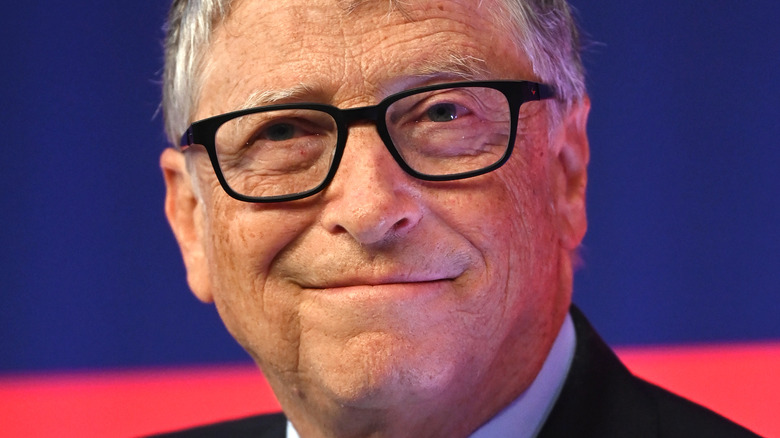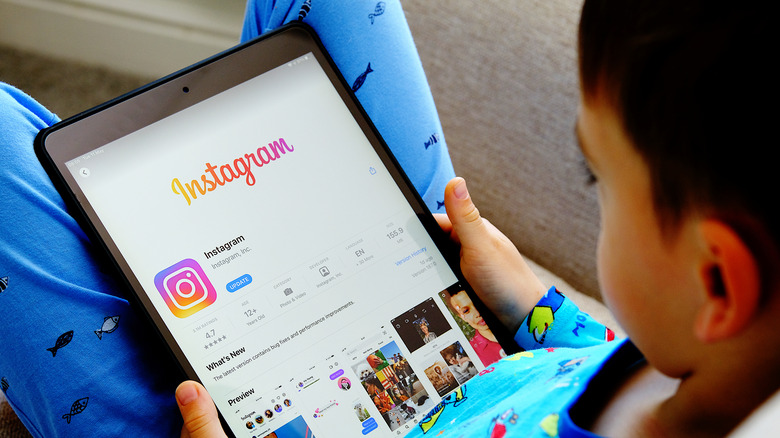The Real Reason Tech Moguls Don't Let Their Kids On Social Media
Since the early 2000s, starting with Myspace and continuing with Facebook, social media platforms have become embedded into daily life. There are now even social media sites created specifically for pre-teens and kids (via Internet Matters).
Per Statista, there are also more than 15,000 children's apps on Amazon Appstore. With this boundless growth of apps to get kids using phones and tablets more and more, it might seem logical that the people who make the apps and devices would be onboard with their own kids using tech. But that isn't the case.
In 2010, a New York Times reporter was shocked when he asked Apple co-founder Steve Jobs, "So, your kids must love the iPad?" to which Jobs responded, "They haven't used it."
According to The Independent, other major tech moguls have encouraged their children to spend less time using tech and scrolling through social media. An example is Microsoft founder Bill Gates, who didn't allow his kids to have cell phones until they were 14, set time limits on their screens, and banned phones at the dinner table. Meanwhile, YouTube CEO Susan Wojcicki told The Guardian in 2019 that she will often "take away" her children's phones, especially when they're on vacation. "I want people to interact with each other," she explained.
Those in tech know the harm social media can cause
According to The Wall Street Journal, it seems that tech giants such as Facebook are well aware of the potential damage to kids caused by social media. In fact, Facebook's own internal research was previously leaked by a whistleblower that showed they knew social media usage could be harmful to kids, particularly for teenage girls.
Per Child Mind Institute, social media usage can cause anxiety, lower self-esteem, and can also encourage bullying. "Kids text all sorts of things that you would never in a million years contemplate saying to anyone's face," the clinical and developmental psychologist, Donna Wick, explained.
Tech moguls are putting limits on what their own kids can do online, while still also publicly creating and selling products that can cause harm. "For all the advantages they and their kids enjoy — from wealth to education — they don't trust themselves or their kids to be able to resist the charms of the very products they're promoting," Adam Alter, NYU marketing professor and author of the book "Irresistible," told The Independent. "The best we can do is to try to uncover these hypocrisies and air them publicly," he added.

